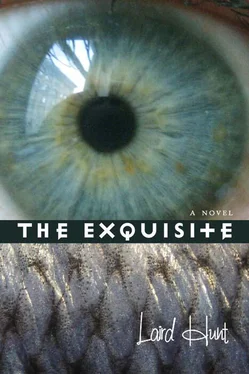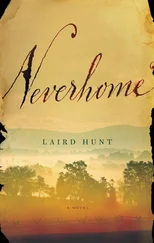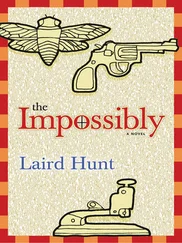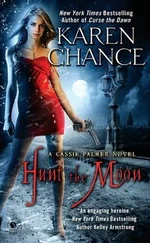I fainted during a bit of my life. I regained consciousness without any memory of what I was, and the memory of who I was suffers for having been interrupted. There is in me a confused notion of an unknown interval, a futile effort on the part of my memory to want to find that other memory. I don’t connect myself with myself. If I’ve lived, I forget having known it.
FERNANDO PESSOA, The Book of Disquiet
I entered. I shut the door. I sat down on the bed. The blackest space spread out before me.
MAURICE BLANCHOT, Death Sentence
Uh, uh, no way, I don’t want it. But you will have it, Henry, you must have it, my dear friend Mr. Kindt once told me. My dear friend who is now dead.
You most certainly were. Indeed you did. Is that so, my dear boy? That’s the way he talked. He would hold his hands up to the light and say, aren’t they marvelous? He seemed to be particularly in love with his left arm. A rough patch of skin could send him into a sulk. His favorite word was alluvial. All the worn beauty of our weary old world in that word, he would say. In his apartment this was. One of those once-handsome buildings, turn of the last century, formerly elegant, now covered in dark netting, bricks crumbling, bludgeoned by time. We would sit there in his living room and eat meat or fish with heavy sauce and drink brandy, and he would talk. My God he would talk, his hands moving like strange moths above the meat.
The first time I saw Mr. Kindt I was standing in the middle of his living room holding a flashlight. Go there, he has things, my friend Tulip had told me. He did have things. Glass beakers and microscopes and anatomical charts and globes and maps and aluminum newspaper weights and a framed poster of a Rembrandt painting of a dissection. Salamanders and small animals and small other things, some possibly alive, but most definitely dead, in jars. And things moving. Things rustling. Things moaning and things howling. And the whole place cold and filled with mist or smoke. I was just standing there taking it in, thinking, yeah, there are some things here, then someone said, hello, Henry.
Who is that? I said.
My name is Aris Kindt, I am the curator of this odditorium, the voice said.
I took a deep breath, tried to see through the mist, the stuff, the smells and sounds.
I saw you leave, I said. You went down the stairs, you got into a cab.
Are you sure I did? Are you sure it was me? This is, after all, in at least one of its guises, a city of subtle simulacra, of deceptive surfaces, of glib and phantom shimmerings.
How do you know my name?
There was a laugh: a box full of electric lightbulbs being stepped on, a school of small frozen fists shattered against a wall. The voice said, shine your torch over here.
“Over here” was onto the back of an enormous leather chair.
I watched you leave and I watched you get into a taxi and I came straight up here, I said.
Perhaps then, Henry, there is more than one of me, said the voice.
I didn’t say anything. I could hear my heart beating in my ears. Sweat was starting up along the inside of my thighs.
He laughed again. Don’t just stand there, do come around.
I went around. Mr. Kindt, the guy I had seen get into a cab, a cab that had driven off, was sitting there, quite naked. There were wires taped to his chest, and he was holding a monitor in his lap, and for a time the two of us held our positions and watched the steady green light make its way across the dark of the screen, and he looked up at me and said, do you see? and although the sweat had spread to my shoulders and temples and my heart was now as loud as a nail driver, I said, yes, and he said, aren’t I lovely?
My friend’s name was Tulip, and through her I met a man named Aris Kindt, who used to invite me over to his apartment and serve me plates of meat or fish, and in this way, and in others, I came to think of him as my dear friend. Herring was both served and the subject of conversation during our meeting. Herring, he would say, is holy. Herring, Henry, is God come to us as a fish. Herring is what was meant in the Gospels. Herring is the divine intricacy. Herring grows luminous when it dies, as, it has been said, did the corporeal Christ when he died, or numinous God, when he will die, or did die, and it tastes smashing, hot or cold. Pickled was mostly how Mr. Kindt liked his herring. In a creamy sauce. He would say, here is how you eat it, and he would eat it, and then I would eat it, and at first I could not quite believe that what I was eating was not something that had been pulled live and coldly wriggling from the earth. At first. Now I, too, when I can get them here, keep small jars marked Leiden with me. It is lovely to hold a bit of herring in your mouth.
Steal something, he said.
First, tell me what’s going on, I said, but halfheartedly, already caught up, even in those first moments, in the gears of the machine grinding away in Mr. Kindt’s apartment.
Oh, but that would be so dreary, so boring. Steal something, Henry. Be a thief!
What should I steal? I asked him.
There are many things here worth stealing.
I looked around. I couldn’t see very well.
Steal anything then get out then come back for dinner tomorrow evening, my dear young man.
Go to this address, Tulip tells me.
We’ve met. We’ve gotten friendly. We’ve shared a few drinks. Exchanged anecdotes. I’ve told her that in one of my recurring dreams, Death, dressed as a cabdriver eating a hot dog, rips me out of my shoes as I’m walking up Avenue. She’s asked me what I do when I’m not having bad dreams, and I’ve told her I’m a thief.
Go to this address and see the things this guy has.
Why?
Go there. It will be lucrative, she says.
I go there. Eighth Street, view of St. Brigid’s and the park. Vintage real estate. I go up lots of stairs. The door is wide open. Mist or cold smoke billows out and I walk in.
Once upon a time I was someone then that stopped. Once upon a time I had a job and lived in an apartment on the Lower East Side, surrounded by the sounds of Dominican Spanish. Salsa music in the summer. The whack-whack of dominos. Old guys selling flavored ices for fifty cents on the corner. Bad engines revving up. In the afternoons and evenings, kids would stand in the broadening bands of shadow, slugging and kissing and laughing at each other, and in the mornings the streets were clogged with street sweepers and garbage trucks and soft-faced, groggy locals moving their cars. The buildings around me weren’t nice, exactly, but they were old and kind of mysterious, with people leaning out of or moving behind the windows, and there were synagogues nearby and churches and a lot of small neon signs. The apartment I lived in was improbably large, with high ceilings and turquoise floors, and it looked out over an empty lot to a white wall, which represented, I sometimes thought as I stood at the kitchen window and looked over to it, whatever vanished building had once stood there full of bowls of ice cubes and electric fans and sweat pooling in the steaming creases of more or less happy or unhappy but now at any rate probably long-vanished skin.
There were cats in the apartment. Making a lot of racket. Breaking things. Laying their lazy asses around. They used to wake me up in the morning by attacking my feet. Biting and lifting off little bits of skin with their claws. But they were my cats and I enjoyed their ministrations, and the damage to my feet and to the basically pretty cheap glassware in the apartment was part of the domestic program. Carine didn’t mind. There would be a flash of gray and a large glass object would hit the deck and shatter and she would light a cigarette and look at me with a dazzling violet gleam in her eye and shrug and smile. Carine. Small. Bones like a pepper finch. Elegant of arm and leg. Always carefully shod. She had a short bob haircut and vintage garments, a propensity to build up static charges, and the softest, palest skin. She used to like to quote the poets. After dinner in the East Village, out on the little terrace at Jules, the ashen air of St. Mark’s Place shot through with street and cab light, seared by the softly burning faces of the people sweeping past. She would quote poets then drink heavily. We both did. “All the colors I could write are not fair as this,” she would say. Glass after tannic glass.
Читать дальше










![Беар Гриллс - The Hunt [=The Devil's Sanctuary]](/books/428447/bear-grills-the-hunt-the-devil-s-sanctuary-thumb.webp)

